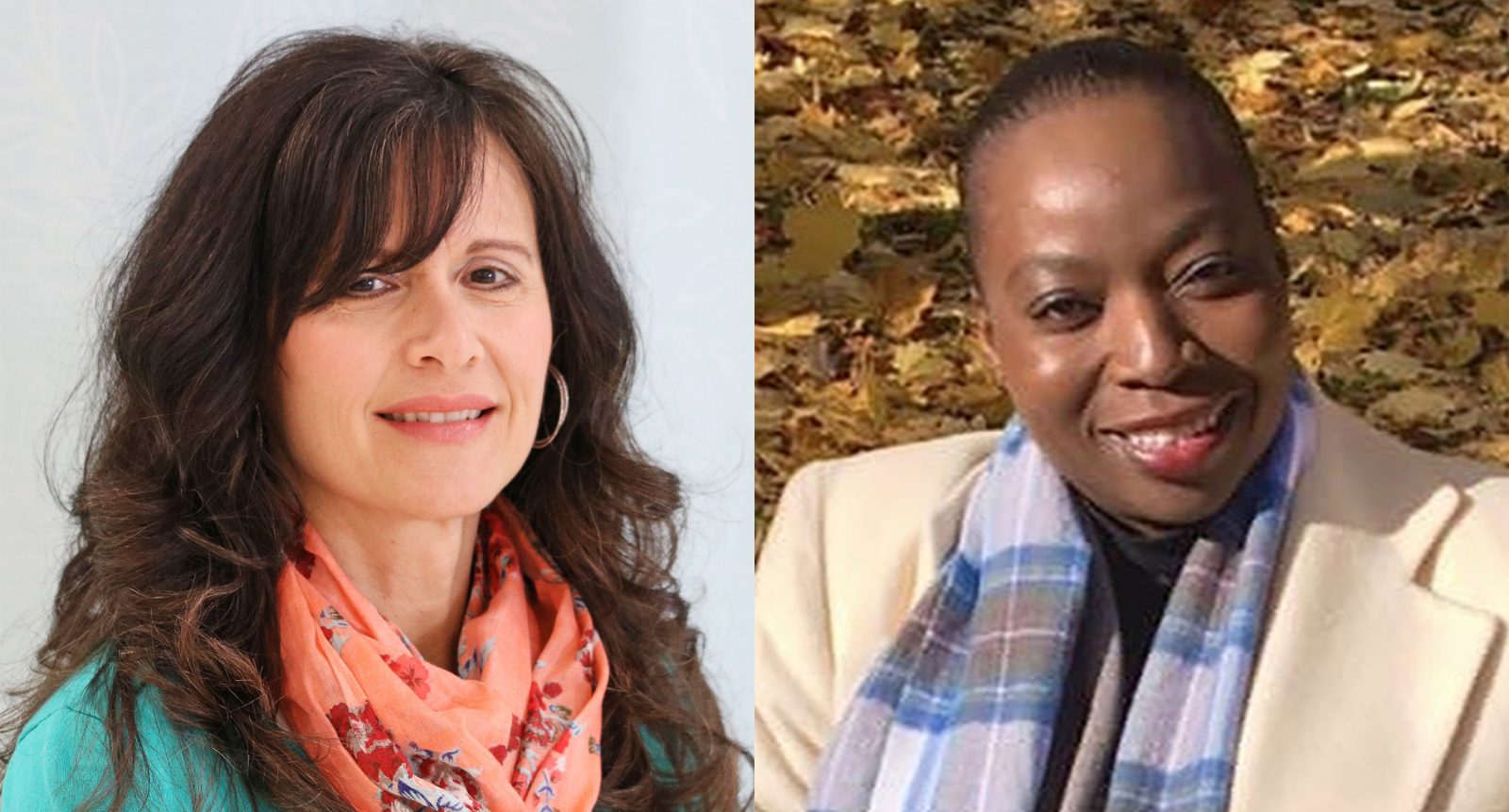 Joanne Crawford, Associate Professor of Nursing at Brock University, and Nyarayi Kapisavanhu, Executive Director of Tools of Empowerment for Success Niagara, are working together on a project regarding the social exclusion of immigrant women in Niagara.
Joanne Crawford, Associate Professor of Nursing at Brock University, and Nyarayi Kapisavanhu, Executive Director of Tools of Empowerment for Success Niagara, are working together on a project regarding the social exclusion of immigrant women in Niagara.Moving to a new country can be a daunting experience and, even years after settling in, feelings of isolation and exclusion may remain.
A team of Brock researchers wants to hear more about the experiences of immigrant women in Niagara in order to help develop strategies that promote inclusion in the region.
Led by Brock Associate Professor of Nursing Joanne Crawford, the study is being conducted in collaboration with Tools of Empowerment for Success (TOES) Niagara and the University’s Social Justice Research Institute (SJRI), and will focus on social exclusion experiences.
Immigrant women in Niagara, as well as community service providers who work with immigrant communities, are invited to participate in the project, which will explore existing and potential programs and services that support social inclusion and the potential needs of immigrant women in the region.
Through interviews and focus groups, immigrant women will be asked to share their experiences of feeling either excluded or included in social, cultural and political aspects of Canadian society. They will also be asked about programs or activities they feel would help to promote social inclusion.
“Literature tells us exclusion is happening, but we want women to share their perspectives of inclusion and exclusion specific to Niagara,” Crawford says.
There tends to be more support available for newcomers in the early years after their arrival in Canada, she says. However, there are women experiencing exclusion beyond those initial years.
Community service providers will be asked to complete a brief survey online about their work experiences and services available through their organization that promote social inclusion for immigrant women and communities. At the end of the survey, participants have the option to consent to a more comprehensive follow-up interview.
“We’re asking them to give their perspective on what they feel is happening with immigrant women communities in terms of feeling included or excluded and how their programs tailor to or have components that tailor to inclusion,” Crawford says.
This is the second phase of the three-phase project, which began with a critical review last year. After collecting the data from community participants, a report will be compiled and disseminated locally during the third phase in hopes of seeing programming developed based on its findings.
“We want to bring the information back to the community first — say, ‘Here’s what we found, we think it might be effective. What do you think and how can we work to develop this together?’” Crawford says. “It’s important to have community buy in. We have to go straight to the people and organizations who will be participating in and running these programs.
“We want to develop and support programming that actually works in the real world,” she says.
Crawford is hopeful that when the report is completed, the evidence will assist local organizations, such as TOES Niagara, in their efforts to obtain funding for additional programming.
“Improving the inclusion of immigrant women will see society reap the benefits of economic contributions and civic engagement,” she says. “It is a win-win situation.”
Community collaboration, including working with TOES Niagara and Executive Director Nyarayi Kapisavanhu, is critical to the project’s success, Crawford says.
“It was Nyarayi who recognized there are issues in the community with immigrant women in Niagara who feel isolated and don’t feel included,” she says. “Nyarayi is on the front lines, so she has a good idea of what’s going to work and what isn’t, and how we can best reach out to women for their input.”
Kapisavanhu says the project is important because it will “help to ensure more equitable access to and control of resources and benefits, and enhance participation in decision-making at group and community levels for immigrant women in Niagara.”
“To this end, I encourage women and girls with lived experience to participate and engage in the process in order to influence pandemic recovery responses as well as program types, outcomes and activities that would best suit and serve them to remove barriers and obstacles that have led to social exclusion,” she says. “This is an example of ‘not for us without us’ at work.’”
Both the SJRI and Crawford have been working for several years with TOES Niagara, which offers workshops, programs and other support services to remove barriers for immigrant and racially marginalized women and their families and help enable improved economic and educational outcomes.
“We have a lot of collaboration going on, it’s been really rich, and it shows how working together really improves your ability to work on something that is going to make a change in the community,” Crawford says. “We each bring something different to the table and acknowledge and respect each other’s skills.”
For more information or to participate in the study, contact Crawford at joanne.crawford@brocku.ca or call 905-688-5550 x4363.








